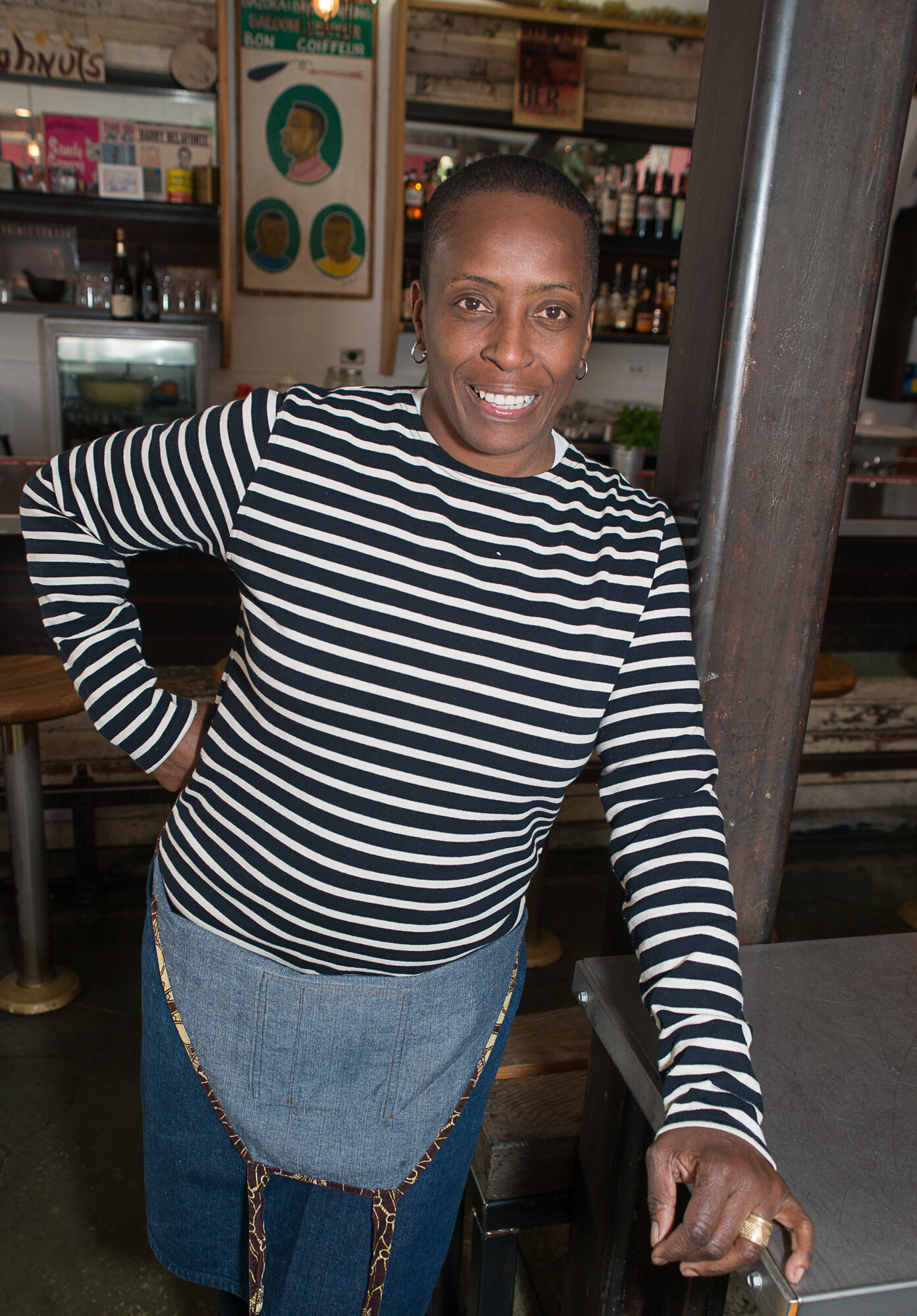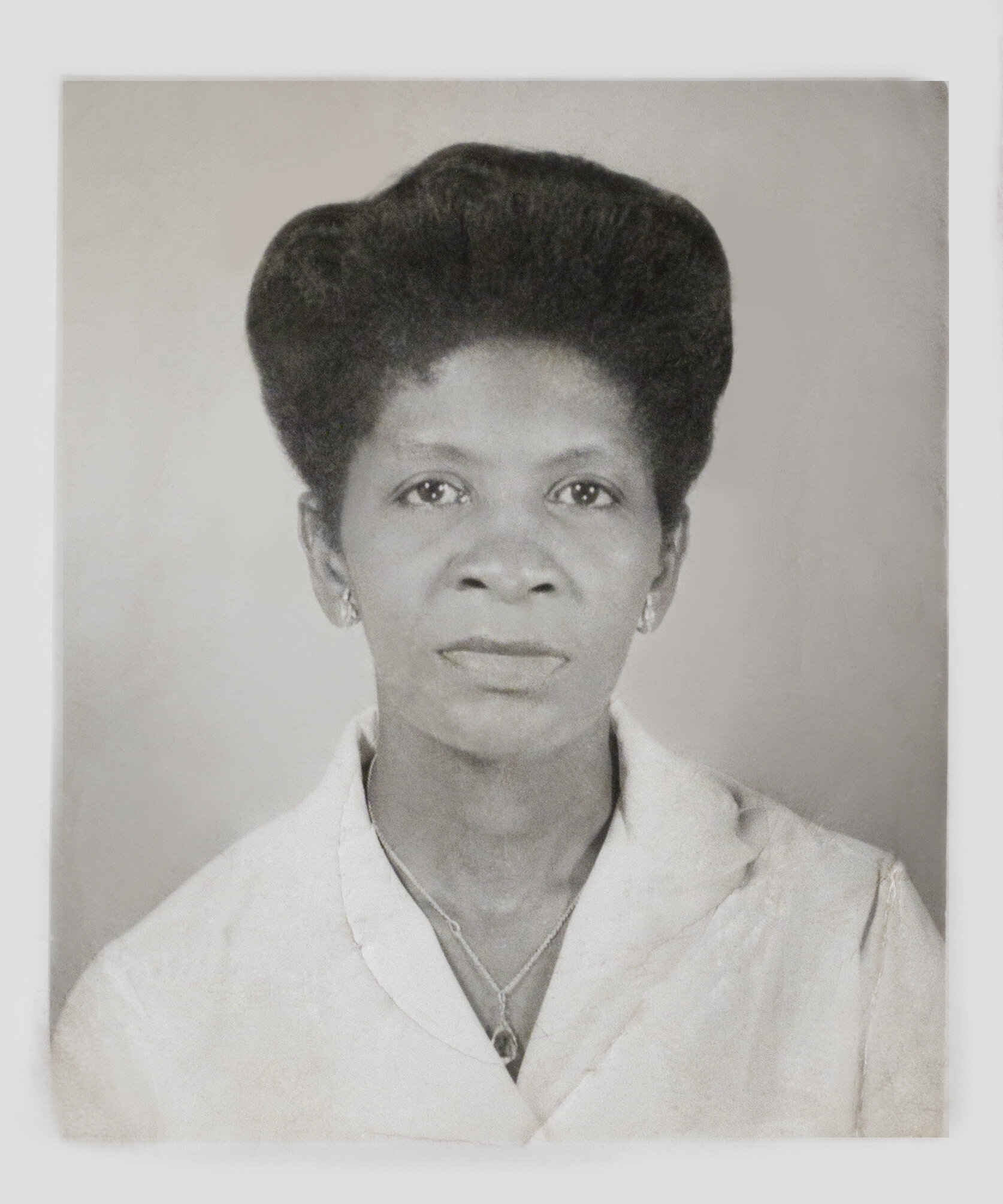Chef Sarah Kirnon Remembers Her Grandmother
When I think of my maternal grandmother -- my Nana -- I think of sauteed green vegetables like kale or chard softened in a sea of olive oil and garlic cloves. She relied swore on their benefit to the blood and, as I struggled with illness as a child, they were constantly on my plate. Just a few months ago, when hibernating through a particularly rough winter, my mother showed up with containers of Nana's greens. Slowly but surely, my "vampiric" feelings ebbed.
When I think of my paternal grandmother -- my Avó -- I think of the bounty of the Azores from which my family immigrated in the 1960s, and to which I still often return: grilled sardines, creamy caldo verde soup, charred chouriço, and spicy baked white beans. She cooked every day of her life, none of those dishes will ever compare to hers, and her recipes are some of my most valued treasures.
These dishes are my comfort. My fortification. My home. My roots.
Chef Sarah Kirnon has roots sharply pulled by her grandmother, too, and a dish of Sea Eggs with Buttered Cabbage and Rice is her sauteed greens; her caldo verde. Sarah spent nine years of early childhood with Miss Ollie -- the maternal grandmother for whom she'd later name her Oakland restaurant -- in Barbados, before returning to her parents in London.
I collected Sarah's story for Plate magazine's Caribbean issue, and while the islands we come from might be thousands of miles apart in both geography and history, we found common ground in food and family. Head to Plate for details on how At Miss Ollie's, Sarah Kirnon Cooks with Heart and History: how she crosses her professional skills and Caribbean cuisine, what she sees in the changing food scene in Oakland, and what she believes in the community of food. And here's a tribute to Miss Ollie herself, and the kinds of memories that create the best kind of chefs.

About Miss Ollie - Sarah Kirnon Remembers Her Grandmother
Sarah Kirnon, as told to Jacqueline Raposo for Plate magazine
In Barbados, my uncle would ride my grandmother to work on a bicycle before I started school. My grandmother would sit on the crossbar, I would sit on the handlebars, and we’d ride to work.
You have to remember, this was in the early ‘70s, when plantations were still run by white folks and most of the people who worked on them were black folks. So my grandmother went into a different entrance. I didn’t understand it then.
My grandmother would go to work, and there would be a list of dishes she would have to cook for the people who were the masters of the house. And then there would be dishes she would cook for people in the fields or the drivers. When I think of that now…wow! That’s intense. My grandmother always had her head held high. We never grew up thinking we were any different; they were just different circumstances. So I say that my grandmother treated all people equally.
Her employer’s family would have arrived generations ago as plantation owners. They had brought someone from the U.K. to teach my grandmother to cook traditional English dishes. So on one side, she’s making cottage pies and sort of boring British food. And then on the other side, for the workers she’s making baked pork or steamed fish wrapped in banana leaves. So that’s how I saw her cook differently; my grandmother was an amazing person to be able to flip back and forth in different styles of cuisine. She never went to England—she never knew the kind of food they had there—but she was taught to do that. When they would have high teas on the plantation, she would make cucumber sandwiches and sausage rolls. If there were parties, she would bring some home at the end of the night, and we would be looking at cucumber sandwiches like, “What’s this?” There was a lot of irony and laughing…
But some of this is very historic and tells you about the late-blooming Caribbeans and how they still held on to... I don’t want to use the word slavery... but plant-ocracy. And that affected people’s livelihoods or their houses or homes. My grandmother spent time cooking for them because they entertained a lot, which meant she spent less time with her family. She would come home and cook straight away. As wonderful as that is, that meant she was cooking all day, every day. Though cooking for her family was clearly a lot different, of course....


